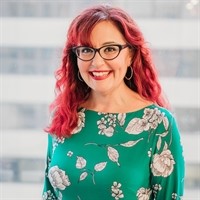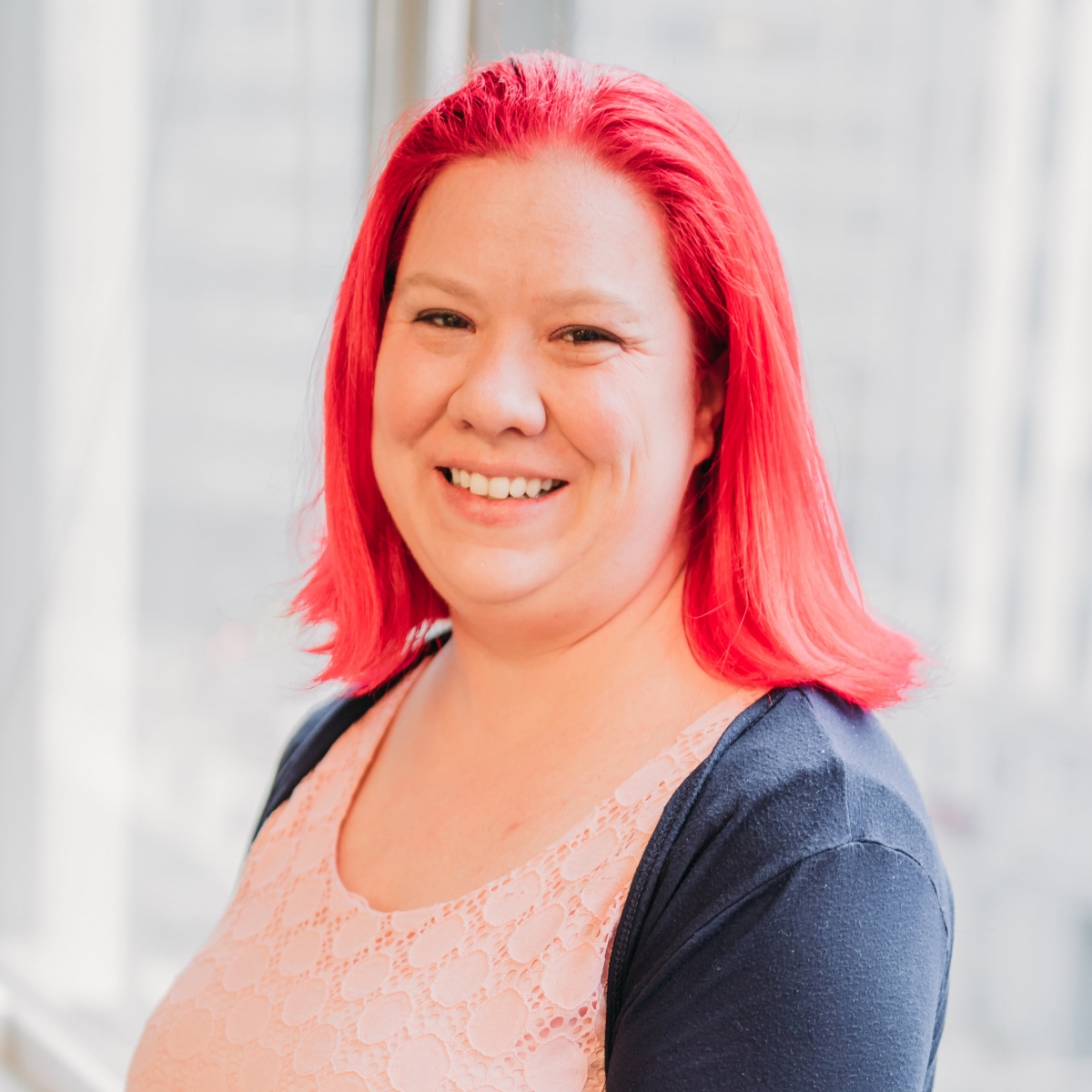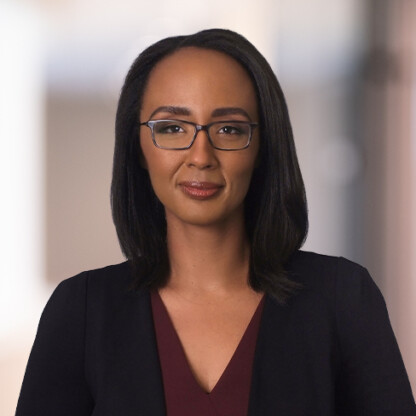Foley Pride Month Workshop: LGBTQ+ Allyship through the Lens of Current Events
 Jean-Marie Navetta Director of Learning & Inclusion |
 Jamie Henkel Manager of Learning & Inclusion |
In honor of Pride Month, Foley & Lardner presented a virtual workshop for all firm members on June 23 led by PFLAG National, the nation’s first and largest family and ally organization. Re-Envisioning Pride, Inclusion, and Progress, a presentation of PFLAG’s Straight for Equality ally engagement program, was led by Director of Learning & Inclusion Jean-Marie Navetta and Learning & Inclusion Manager Jamie Henkel.
Navetta began with a brief overview of PFLAG, which was founded in 1973 by parents and allies seeking a way to use their voices to advance the conversation around LGBTQ+ equality. She encouraged attendees to use the workshop as a safe space to learn and to be kind to each other, even when we disagree. Henkel shared her plans for celebrating Pride Month, and opened up the chat for attendees to share theirs as well.
“Pride looked very different before the pandemic, and the world is still not where it should be,” Navetta said. But we can recommit to moving equality forward in new and innovative ways by finding action-oriented lessons in three major events of the past few years.
COVID-19: At the start of the pandemic, COVID-19 drew comparisons with HIV/AIDS, but Navetta said that was not always fair and accurate. While both viruses revealed the disparate impacts on communities with barriers to accessing quality health care, Navetta showed how COVID-19 made front-page headlines when U.S. deaths reached 100,000 while the same milestone with AIDS was reported on page 18 of The New York Times. “Where I saw actual parallels was with the emergence of a lot of support networks,” she said. And with COVID-19, online access to these networks gave many more people the chance to be heard, whether it was to fight misinformation or participate in Pride celebrations for the first time.
“We need to continue to build inclusive communities and create structures that actually save lives.”
Black Lives Matter (BLM) and Racial Justice Work: Henkel invited attendees to head to the chat and answer the question: Are you comfortable explaining the concept of intersectionality to someone? Intersectionality, which is grounded in work started by indigenous women, is “not simply having identities that overlap,” Navetta explained. It looks at the totality of someone’s experience and how that influences the way they’re treated in power structures – whether that’s to their advantage or disadvantage. “BLM leaders have put intersectionality into practice, consistently emphasizing that all Black lives matter,” she said. And it can fuel a more inclusive approach to change in the LGBTQ+ and other marginalized communities as well.
Global LGBTQ+ Change: “Last year we saw an epic level of anti-LGBTQ legislation at the state level, and we’re seeing the same trend this year,” Navetta said. “But there are signs of hope.” Henkel invited attendees to head to the chat and answer the question: What is one development around diversity and inclusion that has brought you joy this year?
In closing, Navetta encouraged attendees to take action by finding out what’s happening in their state and ways they can help by donating, sharing their skills, and amplifying the good things. It can be really hard to be kind with so much hostility out there, she said, “but don’t opt out of conversations because you don’t want to get into an argument. Lead with love. Speak up. Commit to demonstrate your allyship – and not just during Pride Month.”
This program was presented by Foley’s LGBTQA Affinity Group. Follow the link to learn more about Diversity & Inclusion at the firm.
Author(s)

Alexis P. Robertson
Director of Diversity, Equity, & Inclusion
[email protected]